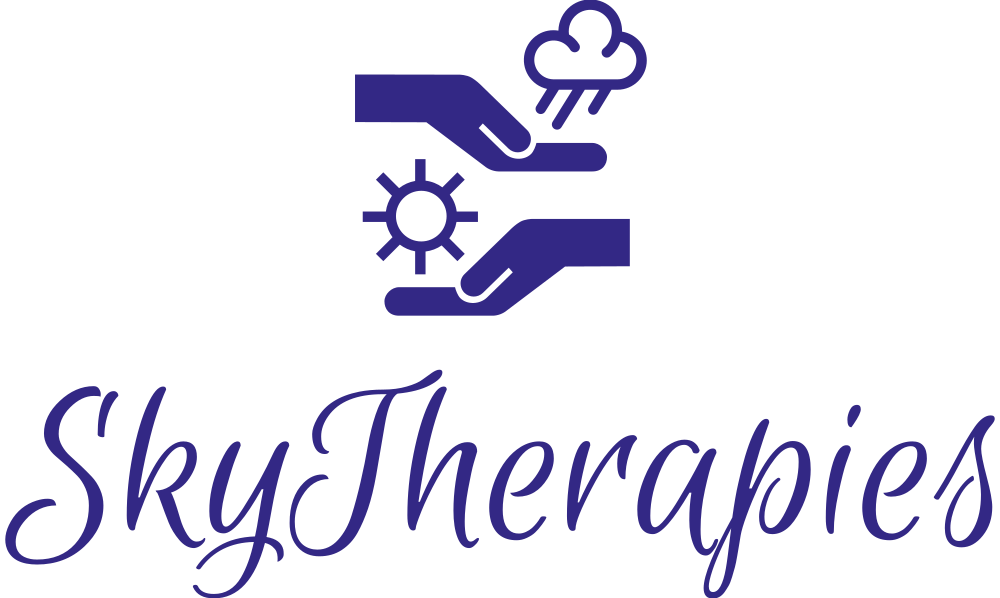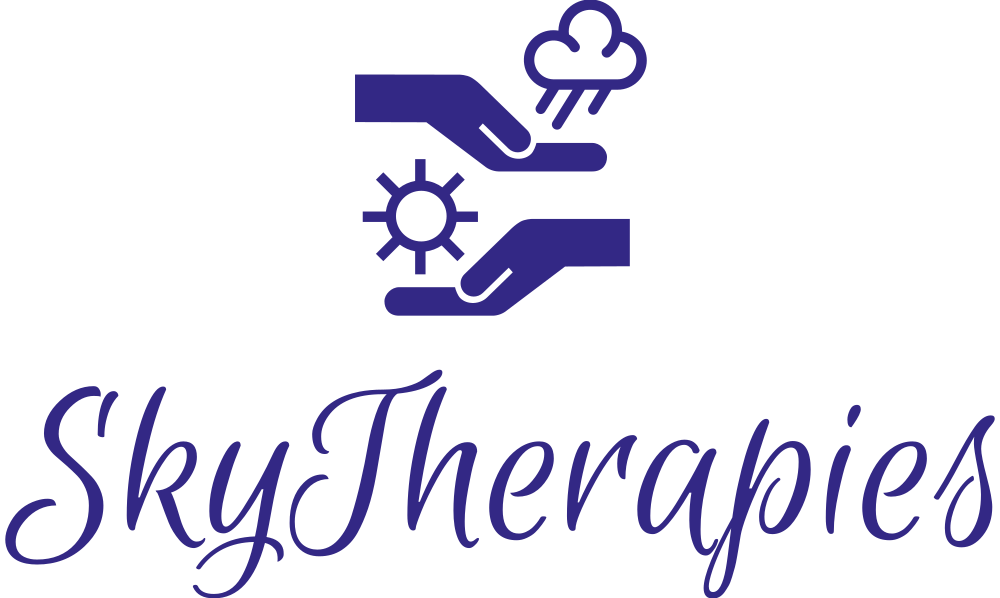Life transitions—whether moving from high school to college, shifting from college to a career, or making other major life changes—are an inevitable part of our personal growth and development. These milestones are often exciting, filled with new possibilities, but they can also be overwhelming and emotionally charged. The challenges that come with navigating life’s transitions can trigger feelings of uncertainty, anxiety, and even self-doubt. How we manage these transitions can significantly impact our mental health and overall well-being.
At Sky Therapies, we understand that navigating transitions isn’t always smooth. Whether you’re stepping into a new chapter of life or reimagining your path, the emotional landscape can feel daunting. But with the right support and guidance, you can transform these transitions into opportunities for personal growth, resilience, and empowerment. In this blog, we’ll explore the emotional impact of life transitions and how therapy can support your journey through these pivotal moments.
The Emotional Impact of Major Life Transitions
Transitions can be exciting, but they can also bring a range of emotions that may feel intense or even conflicting. For many individuals, significant life changes come with a sense of loss or an experience of identity shift. Here are some of the common emotions that arise during transitions:
-
Uncertainty and Anxiety
The unknowns associated with transitions—whether they involve moving to a new place, starting a new job, or adjusting to a new social environment—can trigger anxiety. Questions like “What if I don’t succeed?” or “Am I ready for this?” are common, and they reflect the natural discomfort of stepping into unfamiliar territory.
-
Stress and Overwhelm
Transitions often come with a to-do list that feels endless: adjusting to new responsibilities, managing time, or figuring out the logistics of a new routine. The weight of these responsibilities can create stress and leave you feeling overwhelmed. In particular, for those moving from high school to college or college to career, there’s often pressure to succeed and prove oneself.
-
Identity Shifts
Life changes—like leaving home for the first time or starting a new career—can trigger shifts in identity. The roles you’ve held up until now may no longer align with your new life, and this can create feelings of confusion or loss. Who am I in this new phase? How do I fit into this new chapter of my life? These questions can surface during major transitions, challenging your sense of self.
-
Loneliness and Isolation
Major life changes can make you feel disconnected from your previous support systems. Moving away for college or a new job can create a sense of loneliness, especially if you’re navigating unfamiliar environments or feeling disconnected from friends and family. This isolation can deepen feelings of uncertainty or create self-doubt.
-
Excitement and Anticipation
While these transitions can bring stress, they can also be filled with excitement and hope for the future. Many individuals look forward to new experiences, whether that’s meeting new people, gaining new skills, or finding independence. The emotions surrounding transitions are complex, and balancing them can sometimes feel difficult.
How Therapy Can Support You During Transitions
Therapy can be a vital source of support during times of major life changes. A trained therapist can help you understand and process the emotions that arise during transitions, offering tools to navigate them with confidence and clarity. Here’s how therapy can assist you in making the most of life’s transitions:
-
Providing a Safe Space to Explore Emotions
When you’re going through a major life change, it’s easy to feel like you need to “have it all together.” However, experiencing a range of emotions is normal, and it’s important to give yourself permission to feel what you feel. Therapy provides a safe, nonjudgmental space where you can express your thoughts and emotions freely. A therapist can help you unpack the underlying feelings associated with your transition, so you can understand yourself more fully and respond with greater emotional awareness.
-
Building Coping Strategies for Stress and Anxiety
Stress and anxiety are natural responses to transitions, but they don’t have to take over your life. Therapy can help you identify healthy coping mechanisms for dealing with the stress and uncertainty that come with change. Mind-body therapies, such as Deep Brain Reorienting (DBR), EMDR, and Brainspotting, can help you release the physical and emotional tension that often accompanies stress. By developing tools to manage your emotional responses, you can better navigate the challenges of life transitions with a sense of calm and resilience.
-
Reframing Self-Doubt and Building Confidence
Transitions can trigger feelings of self-doubt, especially when we face the pressure of new expectations and responsibilities. Therapy can help you reframe negative thoughts and build confidence in your abilities. By exploring your strengths and past successes, you can develop a healthier, more empowering mindset as you move forward into your next phase.
-
Exploring Identity and Finding Purpose
If you’re experiencing an identity shift during a transition, therapy can help you process these changes and find clarity in who you are. A therapist can support you in exploring your values, passions, and goals, helping you navigate the uncertainties of change while reconnecting with your true self. This exploration can foster a sense of purpose and direction, giving you the confidence to embrace new opportunities and grow into the person you want to become.
-
Enhancing Emotional Resilience
Resilience is the ability to bounce back from challenges and remain adaptable in the face of adversity. Therapy can help you build emotional resilience during life transitions, so you can face obstacles with a stronger sense of inner strength and balance. With the right support, you can learn how to view life transitions as opportunities for growth rather than as threats. This mindset shift can make navigating change feel more empowering and manageable.
-
Support with Relationship Changes
Changes in your life can impact your relationships with family, friends, or romantic partners. Therapy can provide guidance on how to communicate effectively, set healthy boundaries, and maintain meaningful connections during times of transition. Whether it’s dealing with homesickness, adjusting to a new social circle, or managing new responsibilities with your partner, therapy can help you navigate these relational shifts with understanding and empathy.
How Sky Therapies Can Help
At Sky Therapies, we specialize in supporting individuals through life’s transitions. We understand that these changes can feel overwhelming, but we believe in your ability to grow, adapt, and thrive. Our team offers a compassionate, trauma-informed approach that respects your unique journey.
Whether you’re transitioning from high school to college, college to career, or navigating any other significant life change, we offer personalized therapeutic support to help you navigate these milestones. Using a combination of mind-body therapies such as Deep Brain Reorienting (DBR), EMDR, and Brainspotting, we address the underlying emotional and psychological factors that can arise during transitions.
Our goal is to help you develop the tools you need to face uncertainty with confidence, manage stress and anxiety, and ultimately embrace the opportunities that come with change. You don’t have to navigate these transitions alone—Sky Therapies is here to support you every step of the way.
Moving Forward
Life transitions are powerful moments of change that can open the door to new opportunities, personal growth, and self-discovery. However, they can also come with challenges that test your emotional well-being. With the right support, you can not only manage these transitions but also thrive during them. At Sky Therapies, we are committed to providing the tools, strategies, and compassionate care that can help you navigate the emotional terrain of life changes. If you’re ready to explore how therapy can support your journey, reach out to us today. Together, we can help you create a path forward filled with resilience, hope, and possibility.





